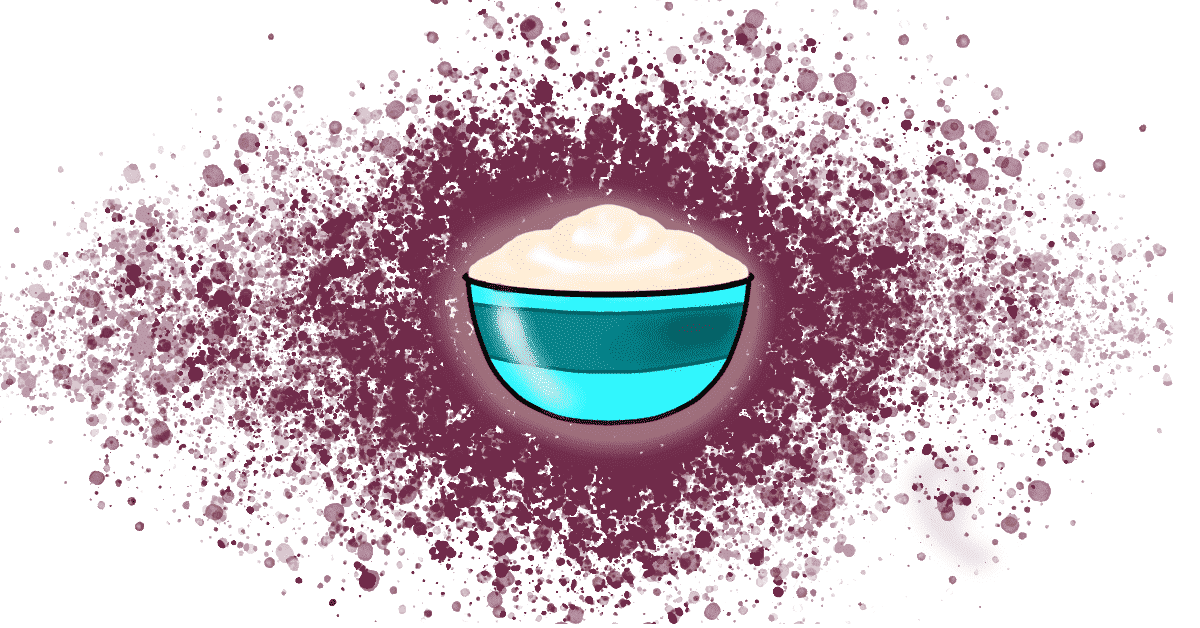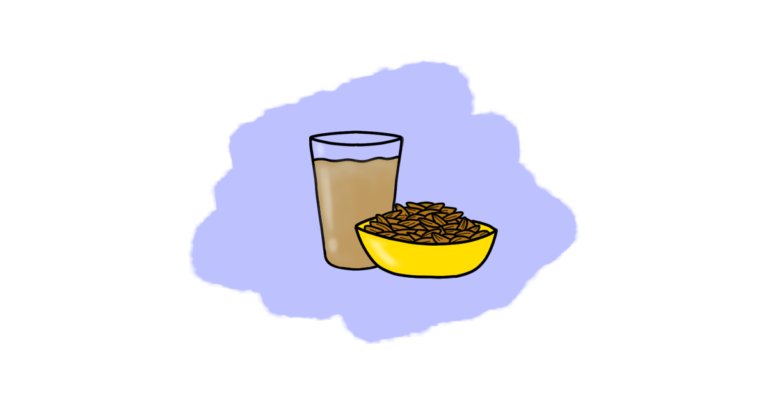Right way to eat curd or dahi

Curd is a pretty effective, natural probiotic and prebiotic.
Depending on which part of India you are from, curd can contain 10-30 million colonies / 100ml of up to 250 different types of bacteria.
Yakult, in comparison, has up to 6.5 billion colonies / bottles of just 1 strain of bacteria.
Research has shown some of these bacteria survive stomach acid and enzymes to make it to your intestine alive. You can learn more about which strains survive (L. Casei) here.
Strains which survive make it to the intestine, push out bad bacteria and support gut health by helping digest food your gut would otherwise be unable to.
To get all the benefits, you must understand how to eat curd…
… and when to eat curd.
This post outlines the right way (and time) to eat curd.
Should I eat sour or chunky curd?
No.
Curd becomes chunky and sour if has been fermented for too long.
Bacteria are eating the sugar (lactose) in curd and releasing lactic acid (making it sour).
Lots of people report digestive trouble when they consume sour curd.
Ayurveda indicates that sour curd is very difficult to digest and recommends you either eat very little, or just leave it alone.
So eat curd fresh within a few days of making it.
Side note: curd will begin souring very fast the moment you put a spoon through it.

“Curd = Probiotics.
This juice = prebiotics”
❤️ by 300+ nutritionists
Which curd is better for me, sweet or salty?
It is common to have curd with jaggery or misri (sweet version) or curd with salt or spices (salty version).
Sweet curd is recommended for those struggling with excess body heat, acidity and hairfall.
It is extremely cooling for the body.
Salty curd is recommended for those struggling with gas and indigestion, as it promotes complete digestion.
What can you add to your curd? Read on…
What can I mix with my curd?
If you are going sweet, opt for small amount of misri or jaggery and avoid table sugar.
The refined variety isn’t good for your health, and it seems to affect growth of bacteria in the curd.
Less bacteria = less effectiveness.
With refined sugar, you are essentially killing the nutritional property of the curd.
You know what else does the same thing… …table salt.
Refined table salt sometimes contains Iodine which a lot of bacteria cannot handle.
Opt for himalayan pink salt or a pinch of rock salt.
When it comes to spices, you must add cumin (Jeera).
Jeera is anti-fungal, and it seems to stop any ‘bad’ microbes from growing alongside the good microbes.
Side note: Add Jeera in with the curd while it is being made. Not just before eating.
Some ingredients you should never mix include turmeric, clove and garlic. Why? They are very strong anti-microbials. This means they slowly kill the good (and bad) bacteria in curd.
Less bacteria = less effectiveness.
Ideally, you should avoid these spices 30 minutes before or after eating curd.
This is why curd isn’t best during meals.
When should I eat my curd?
Have cool curd on an empty stomach, and wait 30 minutes before eating anything else.
Curd contains ‘good’ bacteria which need to survive stomach acid and make it to your gut.
For most people, stomach acid is low in the morning time.
This increases the chance that good bacteria make it to the gut.
Ayurveda recommends you can have it daily during winter, and every alternate day during summer.
Curd isn’t recommended during the rainy reason.
The biggest ‘don’t’ with curd
Don’t eat curd at night.
Curd is a demulcent.
It means the body releases mucus (nose, intestines etc) when you eat curd.
When you consume curd at night, this effect is much stronger. So when you wake up in morning, you may feel congested and/or constipated.
Avoid curd at night.
More questions?
Write us an email on hello@hatabevtech.com, and we’ll get back to you!

Curd = Probiotics.
This juice = prebiotics
❤️ by 300+ nutritionists





![Permanent face clean up in just 2 steps [100% guaranteed]](https://gethugg.com/wp-content/uploads/2021/06/Untitled-design-1-1.png)




